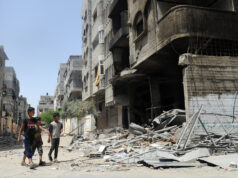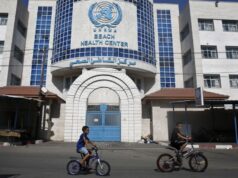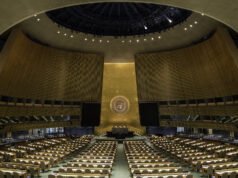Much is happening in Lebanon these days, but not all is for the better. Next month, the United Nations-backed court investigating the 2005 assassination of former Lebanese Prime Minister Rafiq Hariri is expected to indict between two and six members of the Lebanese militant group, Hezbollah. Among those being looked at in the probe are Mustafa Badreddine, a senior Hezbollah military commander, and his brother-in-law and former Hezbollah international operations chief Imad Mugniyah, killed in a car bomb in 2008.
If indicted, Hezbollah is not expected to stand idly by or give up its members to the tribunal. Last week Hezbollah Secretary General Hassan Nasrallah warned that the militant group will “defend itself and its honor against any accusation or attack by whatever means it finds appropriate.” He continued, “The hand that attempts to reach (our members) will be cut off.”
In response, U.S. Secretary of State Hillary Clinton said that “resorting once again to violence in Lebanon runs completely counter to the interests of the Lebanese people” and that “if the goal of violence is to stop the tribunal, it won’t work.” She continued, “The problem in Lebanon is not the Special Tribunal for Lebanon” but “that some are threatening violence in order to try to stop justice.”

Rafiq Hariri assassination scene, February 14, 2005 |
|
Even with Clinton’s strong stance, world powers are seriously concerned as Lebanon’s armed forces are significantly weaker than Hezbollah’s militia. So as tensions reached new heights last week, Congress lifted its hold on monetary aid to the Lebanese military, clearing the way for $100 million to be transferred to the force. The money has been tied up since August, when lawmakers grew concerned over American funds ending up in Hezbollah’s hands after Lebanese soldiers shot at IDF soldiers along the border, killing one Israeli officer. In addition, Russia announced yesterday that it will provide the Lebanese army with free helicopters, tanks, and munitions to help boost the poorly equipped military.
Amidst Hezbollah threats, the Special Tribunal for Lebanon continues on. And if it finally does indict Hezbollah militants of murder next month, those members should be tried in a court of law and brought to justice. While many Lebanese fear Hezbollah’s reaction to such accusations, the United States should do all it can to support the government, especially if Hezbollah follows through on its threats of violence. If Hezbollah is again able to turn their arms against the Lebanese and take over the country, it will be the end of any pro-freedom or democracy movements there. Indeed, a civil war in which Hezbollah wins would be a tremendous victory for Iran and loss for the West – along Israel’s northern border.





